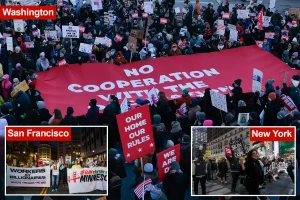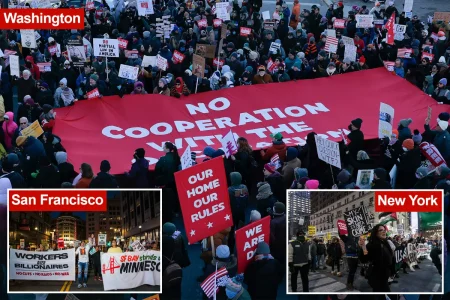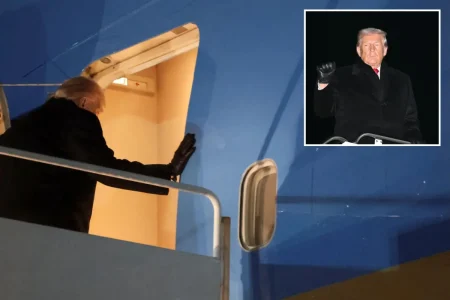France Faces Political Upheaval as Bayrou Calls Emergency Parliamentary Session
Prime Minister’s Bold Gambit Amid National Crisis Draws Sharp Criticism
In a dramatic escalation of France’s political tensions, Prime Minister François Bayrou has summoned lawmakers for an emergency parliamentary session, citing the “gravity” of the current national situation. The extraordinary move comes as France grapples with multiple converging crises that have tested the resilience of its democratic institutions and the unity of its governing coalition. Political analysts and opposition leaders have swiftly responded, with one prominent political scientist describing Bayrou’s decision as “political suicide” while opposition factions have openly declared their intention to use the session as an opportunity to topple the government.
The timing of Bayrou’s call for an emergency session has raised eyebrows across the political spectrum. Coming amid deteriorating economic indicators, rising social unrest, and growing public dissatisfaction with the government’s handling of key policy initiatives, the Prime Minister appears to be making a high-stakes wager on his ability to rally support and reset the national conversation. “The gravity of our current circumstances demands immediate and collective attention,” Bayrou stated in his official announcement, delivered from the steps of Matignon. “This is a moment that transcends partisan politics and requires us to demonstrate to the French people that their institutions remain capable of addressing the challenges we face as a nation.” The Prime Minister specifically highlighted concerns about inflation, energy security, and social cohesion as primary motivations for the extraordinary session.
Political observers have been quick to analyze the strategic implications of Bayrou’s decision, with many questioning whether it represents a calculated risk or a desperate gamble. “This is tantamount to political suicide,” remarked Dr. Élise Bertrand, director of the Center for Political Analysis at Sciences Po Paris. “By convening Parliament at this precarious moment, the Prime Minister has essentially provided a platform for his critics and created the perfect conditions for a confidence vote that his coalition may not survive.” Dr. Bertrand further explained that the fractured nature of the current Parliament makes any government particularly vulnerable to collapse if opposition groups coordinate their efforts. Historical precedent suggests that emergency sessions called during periods of political instability often accelerate governmental crises rather than resolve them.
Opposition Forces Mobilize as Coalition Partners Waver
The announcement has catalyzed immediate mobilization among opposition parties across the political spectrum, with leaders from both the left and right signaling their readiness to challenge the government directly. Jean-Luc Moreau, leader of the left-wing Nouvelle Résistance coalition, did not mince words: “The Prime Minister has opened the door to his own demise, and we are prepared to walk through it. This government has failed the French people on every metric that matters—economic security, social justice, and democratic accountability.” From the opposite end of the political spectrum, Marine Duval of the right-wing Alliance Nationale declared, “We have been clear from the beginning that this government lacks the legitimacy and competence to lead France through these troubled times. We will use every parliamentary tool at our disposal to bring about the change that France desperately needs.”
Perhaps most concerning for Bayrou is the tepid response from within his own governing coalition. Multiple sources within the administration have indicated on condition of anonymity that several coalition partners were blindsided by the Prime Minister’s decision to call the emergency session. “There was minimal consultation with key stakeholders before this announcement,” revealed one senior official from a centrist party crucial to the government’s parliamentary majority. “Many of us are questioning not just the wisdom of this specific decision but the overall direction and cohesion of the coalition.” Political analysts note that without unified support from his nominal allies, Bayrou faces an uphill battle to maintain control of the parliamentary agenda once the emergency session convenes. Several junior coalition partners have publicly stated that their continued support for the government will depend on specific policy commitments from the Prime Minister during the upcoming session.
The domestic political crisis comes at a particularly inopportune moment for France’s international standing. With the European Union facing multiple challenges requiring coordinated leadership and an upcoming G20 summit where France was expected to play a pivotal role in climate negotiations, the potential for governmental collapse creates significant diplomatic uncertainty. International reactions have been measured but concerned, with financial markets showing increased volatility and the euro experiencing downward pressure against major currencies. “Political stability in France has implications far beyond its borders,” noted Financial Times European economics correspondent Sophia Mendes. “As a founding EU member and the bloc’s second-largest economy, prolonged governmental uncertainty in Paris creates ripple effects throughout European policy-making and economic confidence.”
Historical Context and Future Implications
The current crisis exists within a broader historical context of French political volatility. Since the establishment of the Fifth Republic in 1958, emergency parliamentary sessions have occasionally served as pivotal moments of political transformation. The most notable precedent occurred in 1968 when student protests and worker strikes nearly toppled the government of Charles de Gaulle. More recently, the gilets jaunes movement demonstrated the potential for social movements to fundamentally reshape political priorities and discourse. Some historians draw parallels between the current situation and these previous moments of national reckoning, suggesting that France may be approaching another significant inflection point in its democratic development.
Constitutional experts emphasize that while the emergency session itself creates political risk, it also represents an opportunity for democratic renewal. “French political institutions have historically demonstrated remarkable resilience in the face of crisis,” explained Professor Claude Dubois of Sorbonne University’s Department of Constitutional Law. “What appears chaotic in the moment often leads to necessary adaptations and reforms of our governance structures.” Nevertheless, the immediate future remains highly uncertain. If opposition parties succeed in bringing down the government, France could face weeks or months of political limbo while new coalitions form or elections are organized. Alternatively, should Bayrou somehow navigate the treacherous parliamentary waters ahead, he may emerge with a strengthened mandate to pursue his policy agenda.
Public reaction to the unfolding political drama has been mixed, reflecting broader divisions within French society. Polling conducted in the aftermath of Bayrou’s announcement indicates that while a majority of citizens express concern about governmental stability, they remain divided along ideological lines regarding preferred outcomes. “The French public simultaneously desires political stability and substantive change,” explained sociologist Martine Lefebvre. “This paradox makes the current situation particularly unpredictable, as politicians attempt to respond to contradictory public demands.” As the date for the emergency session approaches, all eyes are fixed on the National Assembly, where France’s immediate political future will be determined through what promises to be an extraordinary chapter in the nation’s democratic history.










